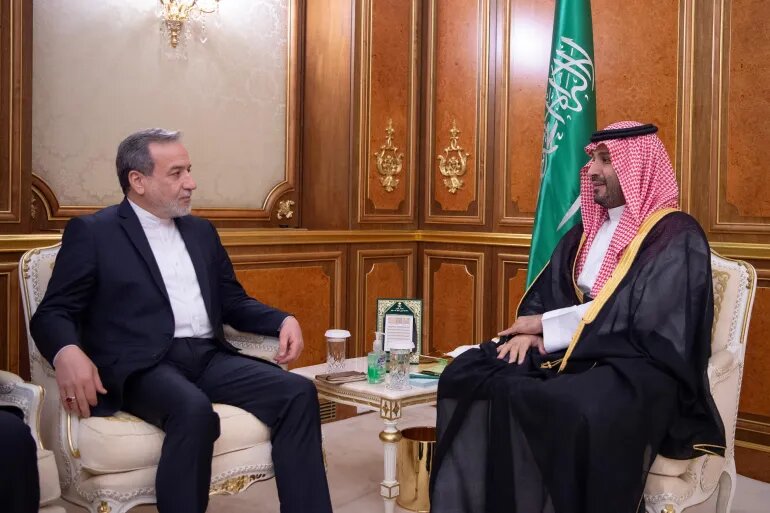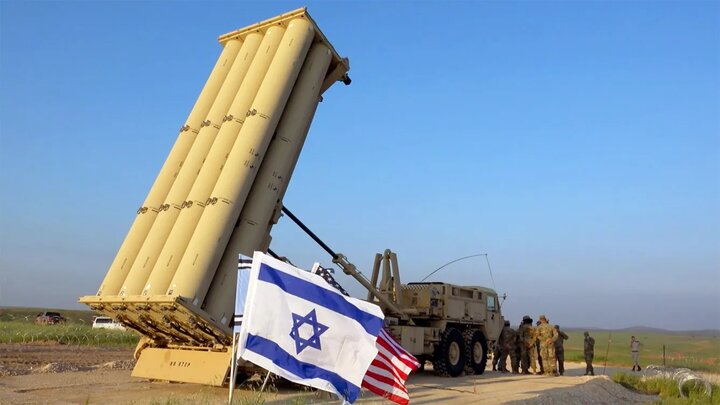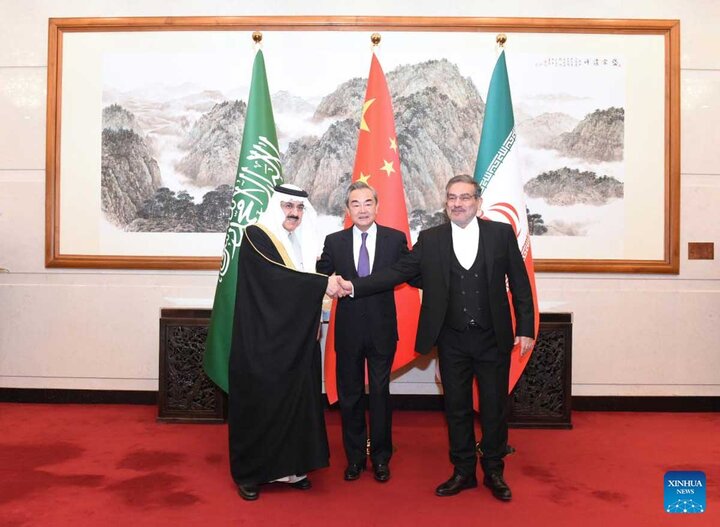Iran–Saudi cordial ties: A thorn in Israel’s side

TEHRAN — Growing amicable relations between Iran and Saudi Arabia have played a significant role in promoting peace and security in West Asia over the past years.
Such cordial ties have come into even sharper focus following Israel’s aggression against Iran last month.
On June 13, Israel launched unprovoked strikes on Iranian territory, targeting high-ranking military commanders, nuclear scientists, and civilians alike. The United States later joined the Israeli war effort, launching attacks on three of Iran’s nuclear facilities—actions widely viewed as violations of the United Nations Charter and the Non-Proliferation Treaty.
In a swift and powerful response, Iranian Armed Forces launched retaliatory strikes on strategic Israeli targets in cities such as Tel Aviv and Haifa, and struck the al-Udeid air base in Qatar—the largest American military installation in West Asia.
By June 24, Iran’s coordinated operations had effectively brought Israeli and American aggression to a halt.
The scale and precision of Iran’s missile power shocked Israel and its Western allies, particularly the United States.
“Although Israel has its own sophisticated, multilayered defense, which includes systems like Arrow, David’s Sling and Iron Dome, the country was running low on its own interceptors and was husbanding resources by the time the conflict ended. Had Iran fired a few more large volleys of missiles, Israel could have exhausted its supply of top-tier Arrow 3 munitions,” The Wall Street Journal reported on Friday, citing American officials familiar with the 12-day war.
The Journal also revealed that despite deploying two advanced THAAD missile-defense systems to Israel in the wake of the conflict, the US efforts proved insufficient to fully stop Iran’s missile barrages.
“Operating alongside Israeli systems, THAAD operators burned through munitions at a furious clip, firing more than 150 missiles to shoot down the waves of Iranian ballistic missiles,” the paper reported.
The intensity of the Iranian attacks created such a high demand for interceptors that, according to the Journal, the Pentagon considered diverting THAAD interceptors already purchased by Saudi Arabia to Israel.
“Saudi Arabia refused US request to send interceptors to Israel”

Meanwhile, according to Middle East Eye, which cited two American officials, the US asked Saudi Arabia to turn over THAAD interceptors to help Israel, but Riyadh rejected the request. “Saudi Arabia's refusal to help Israel will sting officials in Washington,” MEE added.
Saudi Arabia’s “no” to the US demand underscores the deepening ties with Iran.
On July 8, Saudi Crown Prince Mohammed bin Salman (MBS) held talks with Iranian Foreign Minister Abbas Araghchi in Jeddah. In the meeting, the Saudi crown prince condemned any military aggression against Iran’s sovereignty and territorial integrity. He welcomed the improving climate of cooperation between the two Islamic powers.
Araghchi, in turn, “thanked Saudi Arabia for its responsible stance in condemning the Israeli aggression against Iran.”
He put emphasis on Iran’s commitment to building stronger ties with its neighbors, including Saudi Arabia based on principles of good neighborliness and mutual interest.
Araghchi also held talks with Saudi Defense Minister Prince Khalid bin Salman and Foreign Minister Prince Faisal bin Farhan, reaffirming the countries’ commitment to closer strategic cooperation.
China’s mediation drives Iran-Saudi unity for regional stability

The renewed diplomatic warmth is rooted in a 2023 agreement brokered by China, which saw Iran and Saudi Arabia formally restore ties after years of estrangement. Since then, China's constructive mediation has played a key role in bringing Tehran and Riyadh closer together.
As the dust settles on the most intense Israel-Iran war in recent memory, the strengthening bond between Iran and Saudi Arabia emerges as a powerful force for stability in West Asia. Their growing diplomatic, political, and economic cooperation is not only reshaping the region's strategic landscape—but also offering a compelling alternative to the cycles of escalation driven by Israeli aggression.
Once geopolitical rivals, Tehran and Riyadh now appear poised to lead a new era—one rooted in sovereignty, mutual respect, and collective security. Their united front sends a clear message: regional peace is best preserved not through foreign intervention or militarism, but through regional unity and shared interests.
In a time of increasing volatility, Iran and Saudi Arabia are demonstrating that Islamic nations can rise above division and become pillars of stability—capable of defending their people, upholding international law, and resisting those who threaten the peace of the region. The path they have chosen may well define the future of West Asia.
